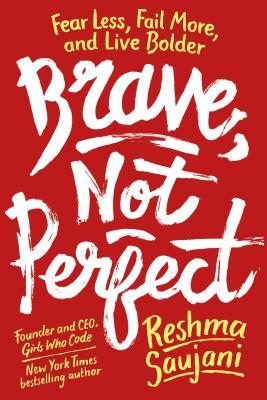
Key Insights & Memorable Quotes
Below are the most popular and impactful highlights and quotes from Brave New World:
Words can be like X-rays if you use them properly – they’ll go through anything. You read and you’re pierced.
But I don't want comfort. I want God, I want poetry, I want real danger, I want freedom, I want goodness. I want sin.
Actual happiness always looks pretty squalid in comparison with the overcompensations for misery. And, of course, stability isn't nearly so spectacular as instability. And being contented has none of the glamour of a good fight against misfortune, none of the picturesqueness of a struggle with temptation, or a fatal overthrow by passion or doubt. Happiness is never grand.
If one's different, one's bound to be lonely.
I want to know what passion is. I want to feel something strongly.
One believes things because one has been conditioned to believe them.
I am I, and I wish I weren't.
Chronic remorse, as all the moralists are agreed, is a most undesirable sentiment. If you have behaved badly, repent, make what amends you can and address yourself to the task of behaving better next time. On no account brood over your wrongdoing. Rolling in the muck is not the best way of getting clean.
Most human beings have an almost infinite capacity for taking things for granted.
I like being myself. Myself and nasty.
...most men and women will grow up to love their servitude and will never dream of revolution.
All right then," said the savage defiantly, I'm claiming the right to be unhappy.""Not to mention the right to grow old and ugly and impotent; the right to have syphilis and cancer; the right to have too little to eat, the right to be lousy; the right to live in constant apprehension of what may happen tomorrow; the right to catch typhoid; the right to be tortured by unspeakable pains of every kind." There was a long silence."I claim them all," said the Savage at last.
No social stability without individual stability.
I'd rather be myself," he said. "Myself and nasty. Not somebody else, however jolly.
I ate civilization. It poisoned me; I was defiled. And then," he added in a lower tone, "I ate my own wickedness.
A really efficient totalitarian state would be one in which the all-powerful executive of political bosses and their army of managers control a population of slaves who do not have to be coerced, because they love their servitude.
...reality, however utopian, is something from which people feel the need of taking pretty frequent holidays....
The Savage interrupted him. "But isn't it natural to feel there's a God?" "You might as well ask if it's natural to do up one's trousers with zippers," said the Controller sarcastically. "You remind me of another of those old fellows called Bradley. He defined philosophy as the finding of bad reason for what one believes by instinct. As if one believed anything by instinct! One believes things because one has been conditioned to believe them. Finding bad reasons for what one believes for other bad reasons–that's philosophy. People believe in God because they've been conditioned to.
The Savage nodded, frowning. "You got rid of them. Yes, that's just like you. Getting rid of everything unpleasant instead of learning to put up with it. Whether 'tis better in the mind to suffer the slings and arrows or outrageous fortune, or to take arms against a sea of troubles and by opposing end them...But you don't do either. Neither suffer nor oppose. You just abolish the slings and arrows. It's too easy." ..."What you need," the Savage went on, "is something with tears for a change. Nothing costs enough here.
One of the principal functions of a friend is to suffer (in a milder and symbolic form) the punishments that we should like, but are unable, to inflict upon our enemies.
A love of nature keeps no factories busy.
Great is truth, but still greater, from a practical point of view, is silence about truth.
There was a thing called Heaven; but all the same they used to drink enormous quantities of alcohol."..."There was a thing called the soul and a thing called immortality."..."But they used to take morphia and cocaine."..."Two thousand pharmacologists and biochemists were subsidized in A.F. 178."..."Six years later it was being produced commercially. The perfect drug."..."Euphoric, narcotic, pleasantly hallucinant."..."All the advantages of Christianity and alcohol; none of their defects."..."Take a holiday from reality whenever you like, and come back without so much as a headache or a mythology."..."Stability was practically assured.
But I don't want comfort. I want God, I want poetry, I want real danger, I want freedom, I want goodness, I want sin.''In fact,' said Mustapha Mond, 'you're claiming the right to be unhappy.' 'All right then,' said the Savage defiantly, 'I'm claiming the right to be unhappy.' 'Not to mention the right to grow old and ugly and impotent; the right to have syphilis and cancer; the right to have too little to eat; the right to be lousy; the right to live in constant apprehension of what may happen tomorrow; the right to catch typhoid; the right to be tortured by unspeakable pains of every kind.' There was a long silence. 'I claim them all,' said the Savage at last.Mustapha Mond shrugged his shoulders. 'You're welcome," he said.
It is natural to believe in God when you're alone-- quite alone, in the night, thinking about death.
Ending is better than mending.
There was a thing called Heaven; but all the same they used to drink enormous quantities of alcohol.
I want God, I want poetry, I want danger, I want freedom, I want sin.
We are not our own any more than what we possess is our own. We did not make ourselves, we cannot be supreme over ourselves. We are not our own masters.
Pain was a fascinating horror


